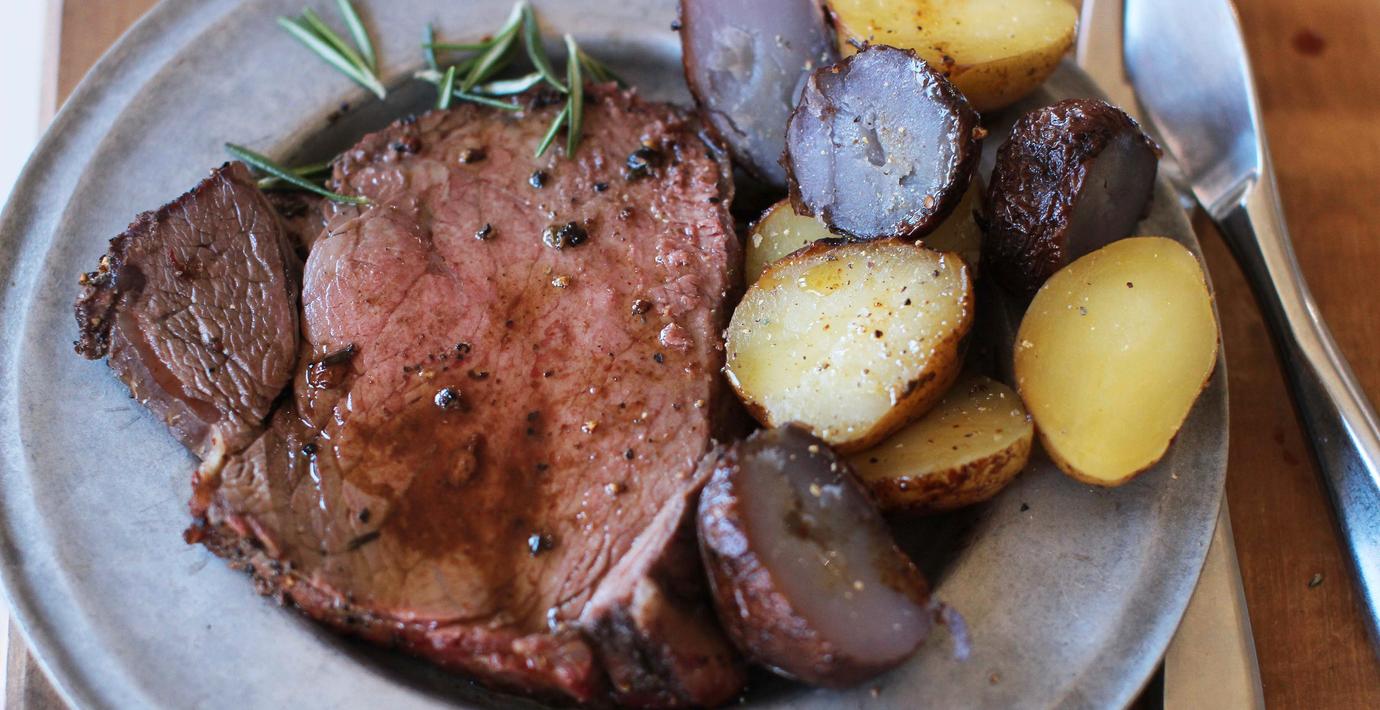
Köttallergi blir vanligare – sprids av fästingar
Det blir allt vanligare med köttallergi till följd av fästingbett i Sverige, rapporterar TV4 Nyheterna. Utvecklingen sker i takt med att fästingar sprider sig till fler delar av landet och är aktiva under större delar av året.
Allergin uppstår som en immunreaktion mot ämnet alfa-gal, som finns i både fästingens saliv och däggdjurskött. Karin Ottosson är en av dem som drabbats. Efter en period med kraftiga magbesvär har hon helt fått ställa om sin kost.
– Det kan vara alltifrån att det börjar klia, att jag får utslag, till att jag blir lika dålig som jag blev från början. Det går inte att förutspå, säger hon i TV4:s ”Nyhetsmorgon”.
bakgrund
Köttallergi
Wikipedia (en)
Alpha-gal syndrome (AGS), also known as alpha-gal allergy or mammalian meat allergy (MMA), is a type of acquired allergy characterized by a delayed onset of symptoms (2–6 hours) after ingesting mammalian meat. The condition results from past exposure to certain tick bites and was first reported in 2002. As of 2025, physicians are not required to report the number of patients with alpha-gal allergy, so the number of affected individuals is unknown.
Symptoms of the allergy vary greatly between individuals and include rash, hives, nausea or vomiting, difficulty breathing, drop in blood pressure, dizziness or faintness, diarrhea, severe stomach pain, and possible anaphylaxis.
Alpha-gal allergy is a reaction to the carbohydrate galactose-alpha-1,3-galactose ("alpha-gal"), whereby the body is overloaded with immunoglobulin E (IgE) antibodies on exposure to the carbohydrate. Anti-gal is a human natural antibody that interacts specifically with the mammalian carbohydrate structure gal alpha 1-3Gal beta 1-4GlcNAc-R (the alpha-galactosyl epitope). The alpha-gal molecule is found in all mammals except catarrhines (apes and Old World monkeys), the taxonomic branch that includes humans.
In 2006, researchers Thomas Platts-Mills and Scott Commins attempted to discover why some people were allergic to the cancer drug cetuximab, and discovered that these individuals had IgE antibodies in their blood that were specifically targeted to the portion of cetuximab which contained the alpha-gal carbohydrate. When Platts-Mills was bitten by a tick and developed alpha-gal allergies, his team concluded that a link existed between tick bites and the allergy. They found that the IgE antibody response to the mammalian oligosaccharide epitope alpha-gal was associated with both the immediate-onset anaphylaxis during first exposure to intravenous cetuximab and the delayed-onset anaphylaxis 3 to 6 hours after ingestion of mammalian food products, such as beef or pork.
Bites from specific tick species, such as the Lone Star tick (Amblyomma americanum) in the US and the paralysis tick (Ixodes holocyclus) in Australia, that can transfer this carbohydrate to a victim have been implicated in the development of this delayed allergic response to consumption of mammalian meat products ("red meat"). Healthcare providers recommend that sufferers avoid food products containing beef, pork, lamb, venison, rabbit, and offal to avoid triggering an allergic reaction. Some afflicted individuals are so sensitive to alpha-gal that the allergy can cross-react with mammalian gelatin and even some dairy products. Individuals with an alpha-gal allergy do not need to become strict vegetarians because reptile meats, poultry—including red meat from ostriches, emus, and other ratites—and seafood naturally do not contain alpha-gal. Increasing evidence now suggests reactions to certain substances with traces of alpha-gal used in the preparation of certain medications, including nonsteroidal anti-inflammatory drugs (NSAIDs) and other analgesics and pain medications.
Alpha-gal allergy has been reported in 17 countries on all six continents where humans are bitten by ticks, particularly the United States and Australia. Alpha-gal allergies are the first known food allergies that present the possibility of delayed anaphylaxis. They are also the first known food-related allergies associated with a carbohydrate, rather than a protein.
Omni är politiskt obundna och oberoende. Vi strävar efter att ge fler perspektiv på nyheterna. Har du frågor eller synpunkter kring vår rapportering? Kontakta redaktionen



